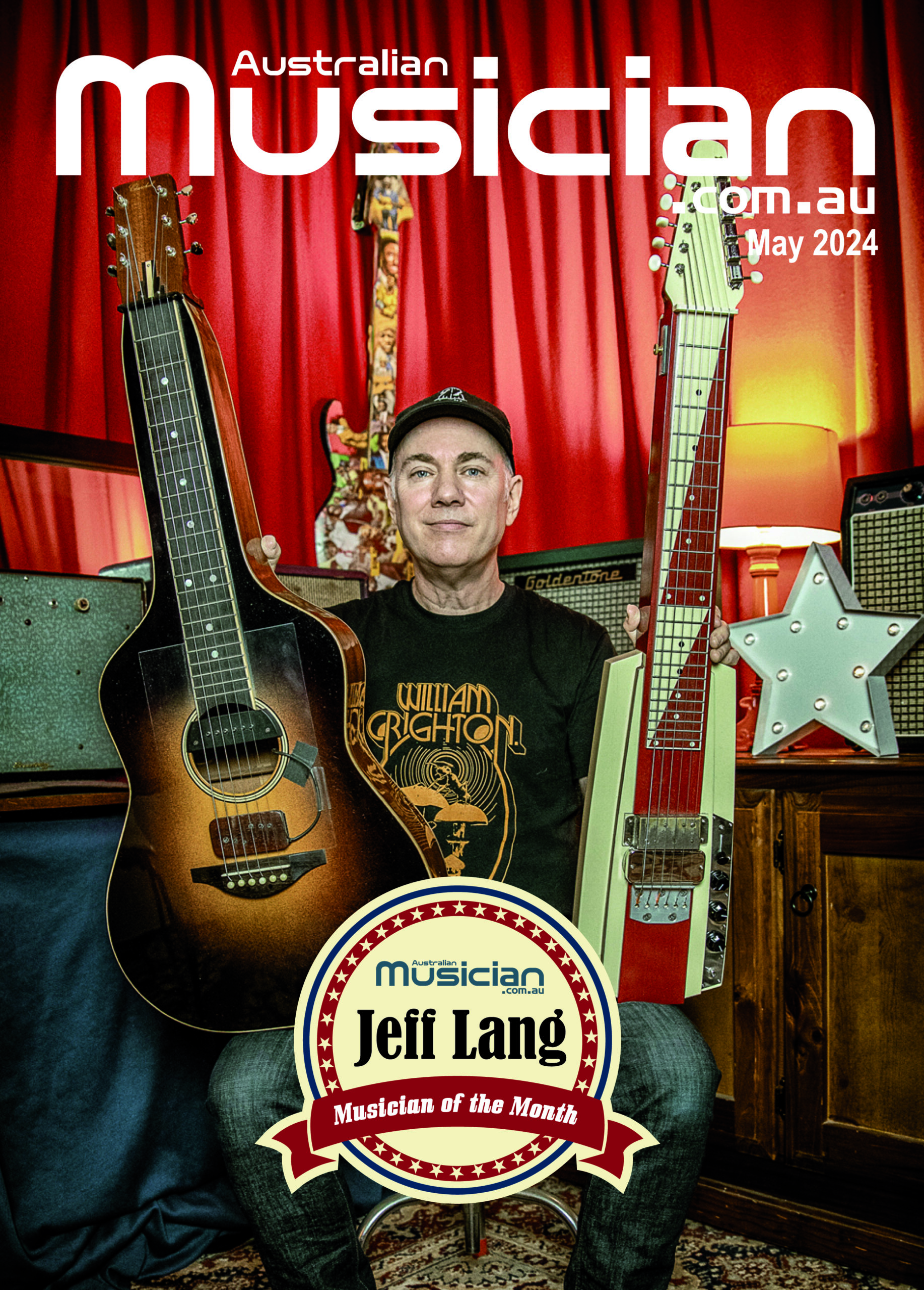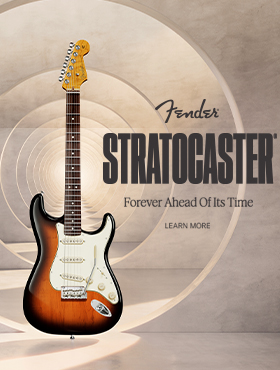
Producer, engineer and US metalcore band letlive’s guitarist, Jeff Sahyoun is talking to us via phone from Hermosa Beach, California. He’s with his dog Sumo, who Jeff tells me is a mix of pitball, German shepherd and black lab. It’s difficult to tell who is walking who but there’s a lot of huffing and puffing going on. The band is about to release a new album “If I’m The Devil …” (June 10) and Jeff is excited about it. I think Sumo is too. The excitement is justified. With “If I’m The Devil …”, letlive have delivered their most ambitious work to date. Apart from perhaps one track, ‘Another Offensive Song’ which features the band’s regular punk-assed brutality, the other tunes will move your mind as much as your behind. It’s not what the band has added but the elements they have taken away which give the album its spacious, soulful personality. I began by asking Jeff if there was a discussion before the recording or even writing process, as to what this album needed to be for the band?
We had a talk about it and it needed to be awesome! (laughs) But that was pretty much the extent of our conversation as we went into the writing process. There wasn’t a lot of chit chat. As soon as everybody came into the writing room, we started picking up instruments and riffing along and started writing it. There wasn’t a schematic perse or any sort of layout or anything we were going for. I think we wanted an album that had no element of filler. We sat on each section of every song with a heavy focus on details. We kept experimenting with all of the elements of the music until we landed those magic moments, as we would call them. At the end of the day, we sat back when it was all finished and we were super excited about what happened.
There’s a great mix of styles on this album. Do the individual members have eclectic music tastes?
Yeah, I think all of us come from really different musical backgrounds and we play to each other’s influence on the writing process. It’s very much a collective effort and everyone had different visions. I think the most challenging aspect of it was trying to make everybody happy, especially when you have five different visions in one room. It can be challenging to find the middle ground sometimes and give everyone a product that each one of us is very happy about and proud of.
There’s a definite message in a lot of the lyrics and a lot of anger at the world, particularly aimed at your own country. Can music still make a difference do you think in a way that it did back in the 60s?
Man, that would be great but I think what complicates things now in our generation is the over-saturation of bands and how many artists there are and how many songs are dropping. Back in the 60s if you signed to a label, you had all this money and all the marketing you wanted. Only the truly great bands got to showcase coming out of deep water, whereas now I feel that there are so many bands and artists dropping music every day. So it can be over-saturated and getting your word out or delivering some kind of message can be challenging.
The album is as much about a vibe, an emotional feeling as it is about a sound. Was that conscious thing?
I think it sort of just happened to be honest. Again, we sat back and experimented with things until we felt something. We’d work on a song for months and if we weren’t feeling it, we’d end up deleting it and writing an entirely new song from scratch. Sometimes the new songs we wrote would only take ten minutes after spending two months on another song. There wasn’t a lot of conversation or arguments in that sense. We kept rolling with the vibes and like you said, it was all about vibes, all about tones … all about feeling something.
For such a fierce sounding band, you guys make great use of space in these songs. Was that something you were aware of?
Yeah that was a topic sometimes … eliminating overcrowded sections of a verse or chorus and we happened upon how to leave a lot of sonic space in the songs. We learned to experiment delivering different levels of energy through that space, which is challenging but when it hits, it hits! Especially when you get to play these songs at soundcheck at a big venue, you get to hear the space you have created and how big it sounds. It’s that cliche thing, less is more. The less we did, the bigger the songs became, so we kept rolling with that.
What was co-producer Justyn Pilbrow’s role in this album?
Justyn was great with tones. He’s a tone junky. Also with the sonic space, he heard sections of the songs that we had created and if the were too busy, he would bring it to our attention and he’d remove certain layers trying to create a sonic space and energy.
Let’s talk about the gear used on this album. Did you use many guitars?
I used a total of two guitars on this album, a Fender Elite Telecaster and also a Telecaster that I had built myself, which was pretty much like an American model but had single coils on it, coil taps and what-not, a very dynamic set up.
How did you record guitars for this album, the same way you always do or did you experiment?
I did. One of the cool things I did do was to use this Guitar Wing which enabled me to control eight elements of Ableton on my laptop, especially for the ambient stuff. I got to mix an analogue guitar amp with a digital one. The majority of it with the miking, we had some pretty big, beautiful rooms that sounded great too.
Are you still using Egnater amps?
Yeah I’ve been using Egnater for almost 7 years. The whole record was recorded on Egnater amps. I think it was about 8 years ago, one of the engineers there, who had been working at Bogner was designing this Renegade head and came up to me at a show and said you should try this, just a mock design. I tried it and I loved it and have had the same head ever since and I’m fortunate because the warehouse and factory is only 20 minutes from my house. Whenever I need something done, I just walk down there. They’re all hand wired, American made. There’s no outsourcing. I also got to use an Egnater FW45 and they have only made about 49 of them worldwide. I got my hands on one of those and that’s on the record too. They sound killer and I can get a vast majority of the sounds I need out of these amps.
At the very start of the track ‘Good Mourning America’ there’s this pure distorted feedback sound, like you just turned the amp on and recorded that. How did you achieve that sound?
I have no fucking idea. When I play guitar there aren’t a lot of rules to what I do. I am not a traditional sort of player. I vibe off feel, you know whatever emotion I am going through at the time so. That sound may have been me putting the guitar down on the floor and stepping on it. I don’t know what pedals were on at the time, it was based on emotions so there were no rules or certain settings. I was just in search of certain sounds. Some of those sounds came up magic because the room was perfect and the vibe was great and we printed it. I’m sure playing it live I will try to come up with something similar but an exact replica might be a bit challenging.
You have an interesting use of bass as a band and particularly on this album. It’ s not so much used as a low bottom end sound, it has more of a higher frequency role. On the track Nu Romantics, it’s really in the background. Is that just RJ’s style or a sound the band goes for?
Yeah it’s loud in the mid range. I think that is a hybrid of what RJ has been into and a thing that the band is into. I don’t think people give enough credit to bass players. I think it is one of the most important instruments in the army. A lot of our past records never really got to focus in on what RJ was doing, the bass elements and I think on this record we definitely wanted that. That cause and effect is leaving some space, some mid room in there for the bass guitar to drive the songs. We love that grungy sound but clean in the lower end.
What about the incidental sounds, the people talking in ‘Good Mourning America’, the Eastern European walkie talkie conversation on ‘Foreign Cabs Rides’. How much time did you spend searching for those little soundbytes.
Oh zero. I think ‘Foreign Cab Rid’e was Jason in an Uber. I cant remember what country we were in but this guy just kept talking on the phone. It was hilarious. I still personally don’t even know what he is saying. We’re kind of a silly bunch sometimes. We’re super sad or serious sometimes and other times a song might be about something weird in an Uber car. We just grabbed our iPhones and recorded this guy and thinking what the fuck is he saying. It fits the track perfectly. With the voices on ‘Good Mourning America’, that was a little more planned. A bunch of our friends came to the studio and we made an entire day out of it.
Will this be a difficult album to play live? Do you need to change your set up much?
Yeah we’re going to change our set up. Definitely guitar and pedalboard wise. There are definitely aspects of the live show which will require keys and laptops and I’m working on that right now. It’s not just an amp and guitar on stage. With some of the other records, I can be on stage and not even have to use pedals, just a tuner. Whatever effects I’ve needed, I’d find a piece of glass or bits of plastic to create different sounds but this catalogue is a little more challenging. It makes things more interesting as well because it’s going to show the growth of the band and it’s fun to come across new gear, it keeps it interesting for us too. You don’t get bored on stage with new toys to play with.
When do we see you in Australia?
Oh man everybody keeps asking that question! Soon? I wish I had a date to give you because I love it over there, we all do. The record comes out in June and I don’t think it will take a year for us to get there but it’s inevitable.

letlive’s album “If I’m The Devil …” is out June 10


